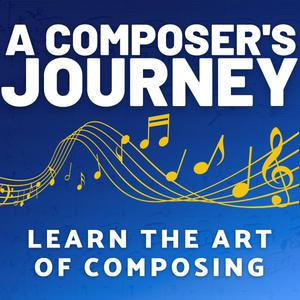
A Composer's Journey - Learn the Art of Composing
Inside the Score
Composing music can be incredibly fulfilling. In this show we explore techniques, tools, ideas, and the art of composing. We'll consider both traditional and more modern styles of composing, from the concert hall to film and TV. Each episode will focus on an idea, technique, principle, or a great piece of music which we can learn from. The aim is for every episode to give you practical, actionable advice which you can use in your own music, and which will help you to grow as a composer.
- 15 minutes 49 secondsThe Making Of An Epic Orchestral Adventure - Time Machine
I walk you through a short, epic orchestral adventure, taking you through some mixing decisions, and scoring decisions that can lead to exciting orchestral textures with natural orchestral forces.
This audio was taken from a YouTube video - if you want to watch my screen as I talk through this, you can do so here: https://youtu.be/HLQ5zNDwsuI
Check out my composing course here:
https://www.insidethescore.com/composer20 February 2023, 6:00 pm - 5 minutes 34 secondsThe "Big One" to Focus On (Beginner or Advanced)
This episode talks about the one big question you should ask yourself if you're trying to develop and grow as a composer. From years of teaching, I've learned that beginners and more advanced composers can get so much out of studying the same piece of music - but they'll take completely different lessons from it. So, if you're interested in growing as a composer, whatever level you're at, have a listen!
Join the Free Composing Workshop! It's happening this week, from the 29th April to 6th May. I'm only doing this once this year! You can join the workshop here.
25 April 2022, 11:02 am - 11 minutes 39 secondsHow To Actually Develop A Musical Style
This episode talks about developing a musical style, and specifically: What exactly is musical style, and how can we develop our own unique voice?
In the last part of the episode, I mention my upcoming free Composer Workshop, which is happening live online from 29th April - 6th May. If you want to register for this event, you can visit https://www.insidethescore.com/workshop
20 April 2022, 1:46 pm - 6 minutes 6 secondsHelp me to Design a Composer Workshop
I'm excited to announce a Composing Workshop, which will happen live from April 29th to May 6th! It's completely free, and while I've drafted the lesson plans, I need your help putting the finishing touches in! Listen to this podcast to learn how you can help me to create the perfect Composer Workshop.
To join the list and send me your ideas, you can visit THIS LINK
12 April 2022, 4:30 pm - 11 minutes 57 secondsHow Memorizing Music Will Transform Your Composing
After last week's illuminating conversation with David Conte (check out the podcast episode), I decided to try out memorizing a few short pieces of music, to see what the experience teaches me. Spoiler alert - I'll definitely be doing more of it in future. In this episode I talk about what memorizing music has taught me, so far... and it's only been two weeks!
For a lot of free bonus content on composing, which is coming up over the next few months, go to https://www.insidethescore.com/composers
28 March 2022, 1:00 pm - 42 minutes 20 secondsHow to Actually *Learn* Composing - Composition Pedagogy with David Conte
This is one of the most illuminating conversations on music I have had in living memory. Our guest today is David Conte, who is Chair of Composition at the San Francisco Conservatory, student of Nadia Boulanger, and apprentice of Aaron Copland. He's a successful composer with over a hundred published works, many of which are becoming staples of the modern repertoire.
In this interview, he talks about:
- The key points he learnt from Nadia Boulanger
- The skills he finds most valuable for a composer to learn
- His thoughts on the "chief job of a composer"
- What originality in composing really means, and where it comes from
- The utility of learning traditional harmony and counterpoint
- Why Nadia Boulanger's music is receiving newfound attention
And much more. I'm not exaggerating when I say I was fascinated by David's thoughts, which stem from his decades of experience teaching and learning composition at the highest level.
I really think you'll enjoy this conversation, and you'll learn a lot too.
If you want to join the email list, to receive a once weekly piece of bonus composing content, you can do so for free, by visiting this link!
21 March 2022, 4:30 pm - 15 minutes 20 secondsHow John Williams Writes for Percussion (Not What You'd Expect)
This episode explores Williams' writing for non-tuned percussion, particularly in his cue "The Quidditch Match" from Harry Potter and the Philosopher's Stone. We look at how John Williams uses percussion in ways you might not expect, and which adds a lot more dynamism and interest to his more bombastic cues.
To join the list for bonus composing content, you can visit this link: https://www.insidethescore.com/composers
28 February 2022, 12:40 pm - 23 minutes 34 secondsThe Five Phases of Composing
This episode talks about the five essential phases of composing that experienced composers generally go through, and why it might be a great idea to adopt them. It also shares details of my upcoming training on composing.
If you want to join my list, and be the first to hear about the launch of this course, then you can visit http://insidethescore.com/composers
11 February 2022, 6:51 pm - 19 minutes 50 secondsJohn Williams' Orchestration in Harry Potter, 'Leaving Hogwarts'
This episode explains how valuable it is to "learn from the masters". I spent last night transcribing a track from one of my favourite film scores; in the latter half of this episode, I show you what John Williams' music sounds like with and without some subtle, but crucial elements of orchestration.
Make sure to join the list if you want a say in our upcoming composing course: https://www.insidethescore.com/composers
31 January 2022, 6:06 am - 10 minutes 7 secondsStuck in a 4-Chord Loop? Here's Why Your Beginning Matters
In this episode, I explain how to avoid problems like the '4-chord loop' that plagues a lot of music, and why the beginning of your piece is crucially important when handling this kind of problem.
To join my list and be the first to hear about my upcoming composer course, CLICK HERE: https://www.insidethescore.com/composers
25 January 2022, 7:17 pm - 11 minutes 40 secondsMy Composing Process: The Creative Phase
This episode talks about the power of the 'Creative Phase' - a period of sheer creativity at the start of each project. I talk about how to implement a creative phase, and what it can do for your writing process.
If you want to join the list for weekly composing tips, you can do so here: https://www.insidethescore.com/composers
18 January 2022, 6:00 pm - More Episodes? Get the App
Your feedback is valuable to us. Should you encounter any bugs, glitches, lack of functionality or other problems, please email us on [email protected] or join Moon.FM Telegram Group where you can talk directly to the dev team who are happy to answer any queries.
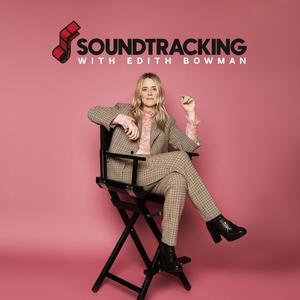 Soundtracking with Edith Bowman
Soundtracking with Edith Bowman
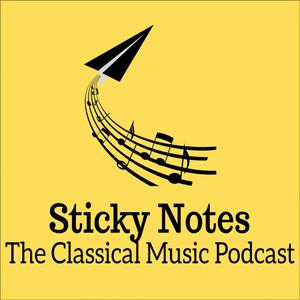 Sticky Notes: The Classical Music Podcast
Sticky Notes: The Classical Music Podcast
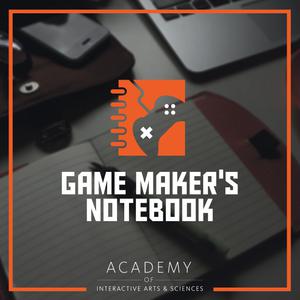 The AIAS Game Maker's Notebook
The AIAS Game Maker's Notebook
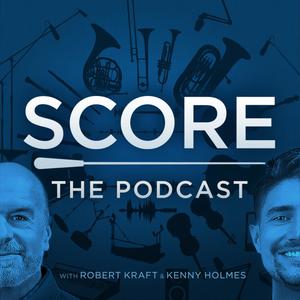 Score: The Podcast
Score: The Podcast
 Radiolab
Radiolab
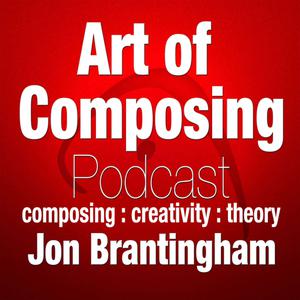 The Art of Composing Podcast
The Art of Composing Podcast